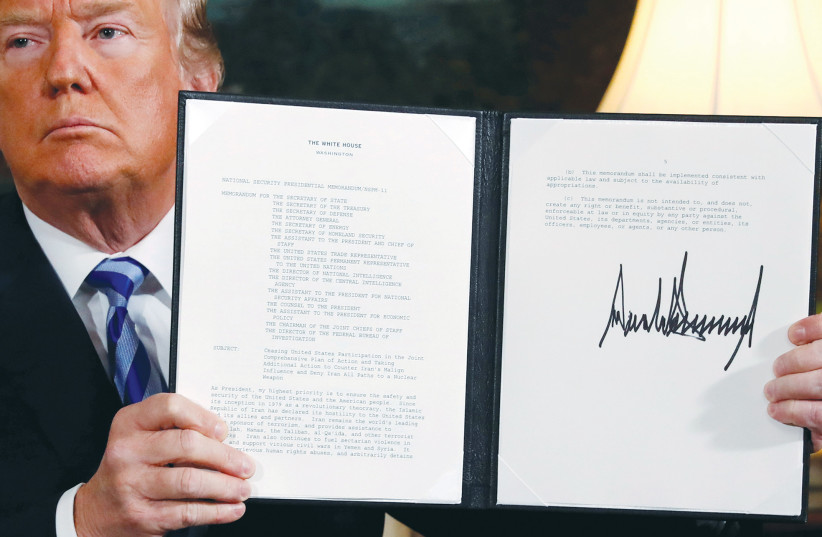Iran does not want a nuke deal. Iran never wanted a nuke deal. Iran does not even want to resume talking about a nuke deal. And that is why, when it comes to the nuke deal now under discussion, Iran is dragging their proverbial feet.
This is not new, certainly not news, given that for a period of time, the specific purpose of nuke talks was to enable Iran to drag their feet. Turns out, the only parties interested in a nuke deal with Iran are those who live in the West.
The West, particularly the US, wanted nuke talks from the onset. That’s why there were talks. The US wanted, and now once again wants, a nuclear deal with Iran. After all these years, all these stop/start talks and negotiations, what should be clear – but apparently is not so clear – is that deal or no deal, Iran will do whatever Iranian leadership wants to do.
With a deal, Iran sneaks around and carries out their dastardly, actually deadly, nuclear shenanigans, much as they do without a deal. I’ve said it before and I will say it again – whether out in the open or via cloak and dagger, whether under the ruse of an agreement or in blatant disregard of an agreement, Iran will do whatever Iranian leadership wants to do.
Try after try

The Joint Comprehensive Plan of Action (JCPOA), was agreed upon in the spring of 2015. President Donald Trump scrapped it in 2018. President Joe Biden and the Europeans are trying to revive it in 2022.
And throughout the years, Iran has been laughing at the West.
The biggest problem with “the deal,” and all the negotiations it sired, is that “the deal” follows the Iranian plan, not the plan of a concerted group of nations. And the West has played right into Iran’s hands. Iran develops their nukes while negotiations continue – or don’t. It’s all the same.
WHILE THERE are certain Israeli thinkers, analysts and former intel leaders who assert that the JCPOA was better than no deal at all, I think recent history has taught us otherwise.
Over time, Israel’s voice has become more united. So much so that almost every Israeli leader who met with President Biden face-to-face during his visit to Israel, told him in no uncertain terms that negotiations with Iran without “a meaningful threat of military action” is useless against Iran.
It was the Israeli mantra. But Israel’s advice fell on deaf ears.
There is, however, some hope. A glimmer of hope. Slowly, hesitantly, there have been several Western leaders who have come to recognize Iran’s game play and spoken about it openly. They realize that Iran is taking advantage of the West’s desire to negotiate.
Britain’s head spy, Richard Moore, heads up the British Security Intelligence Service known as MI6. Moore is still equivocating even though he does not think that Iran wants a deal.
Speaking at the Aspen Security Forum, Moore explained that he thinks the deal is the best way forward. But, he said, “I’m not convinced we’re going to get there... I don’t think the Supreme Leader of Iran wants to cut a deal.”
Still, Moore cautioned, “The Iranians won’t want to end the talks either, so they could run on for a bit… I think the deal is absolutely on the table. And the European powers and the (US) administration here are very clear on that. And I don’t think that the Chinese and Russians, on this issue, would block it. But I don’t think the Iranians want it.”
Also in attendance at the forum was Defense Minister Benny Gantz. Addressing that very same issue later that day in his presentation, Gantz made it very clear that Israel had the military capability to prevent Iran from obtaining a nuclear weapon. But a military strike, he insisted, was a last resort. Gantz clearly told the group that Israel considers any future Iranian nuclear weapons capability as a threat to Israel’s very existence.
Gantz left nothing open to question when he said: “Should we be able to conduct a military operation to prevent it, if needed? The answer is yes. Are we building the ability? Yes. Should we use it as a last (resort)? Yes. And I hope that we will get United States’ support.”
Three simple facts
IRAN IS not only listening, Iran is responding. Tehran has announced that they are capable of making a nuclear bomb. According to Kamal Kharrazi, a senior adviser to Iran’s Supreme Leader Ali Khamenei, who spoke to Al Jazeera’s Arabic station: “In a few days we were able to enrich uranium up to 60% and we can easily produce 90% enriched uranium... Iran has the technical means to produce a nuclear bomb but there has been no decision by Iran to build one.”
It comes down to 1, 2, 3.
1. Iran is moving ahead with their nuke program.
2. The West, especially the US, is deluded to think otherwise.
3. Israel will need to act on her own – and she can.
The writer is a social and political commentator. His new show, Thinking Out Loud, can be seen on the Jewish Broadcasting Service. His latest book is Thugs.
